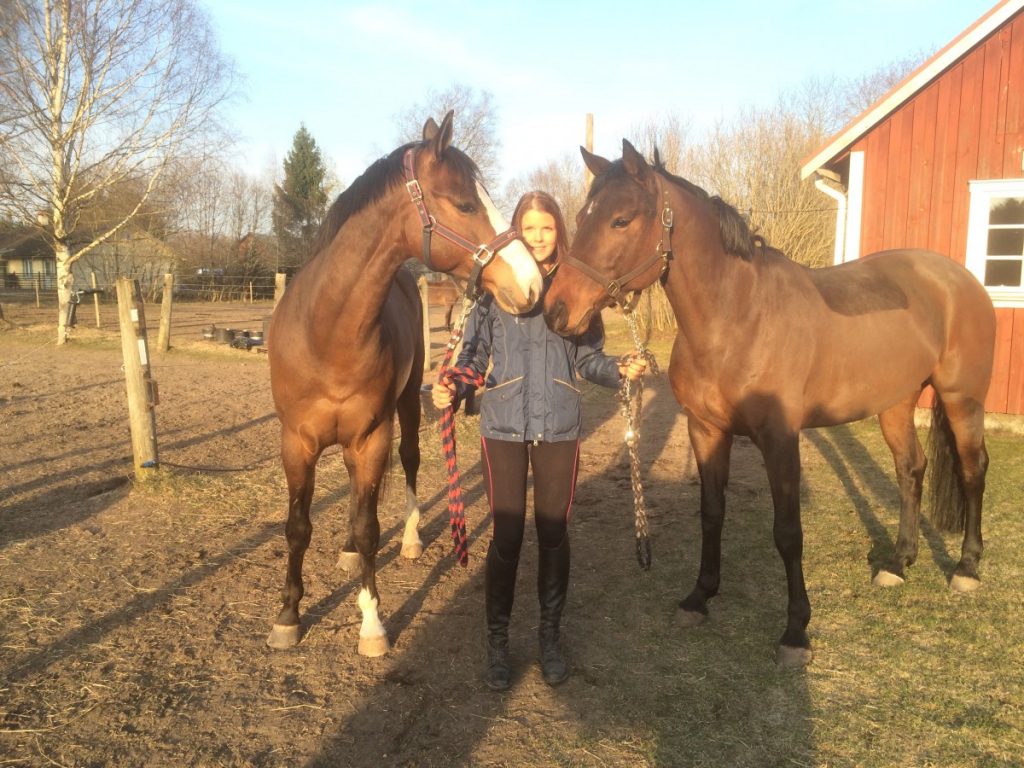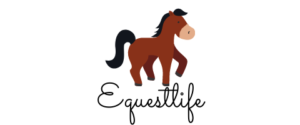Supplements seems to be a buzz word for both animals and humans. It is so frequently used and advertised that it is sometimes challenging to dig through the information to determine what is accurate and what is sensationalized. When considering supplementation for humans or animals, you must consider and weigh the benefits and consequences carefully.
Do young horses need joint supplements? If your horse is not getting proper nutrition from their food, then yes, joint supplements may be necessary.
It is challenging to give an answer that blankets every single horse when it comes to their diets because diets vary from horse to horse. In this article, you will learn about joint supplements for horses, when they need them, and if they need them.
The Growth Period is Critical
Horses grow a tremendous amount in their first few months of life. This time is critical to healthy joint development. The article Growing Problems highlights a common disease faced by growing horses that can impact joint growth and development. This issue is called Developmental Orthopedic Disease (DOD). This disease can impact the bones, growth plates, and joints of growing horses and can cause difficulty with a horse’s mobility as they age.
To help eliminate the risk of DOD, there are several things the horse owner can do during this critical growth period, such as:
- Provide proper nutrition
- Limit exercise and monitor the surface that exercise is occurring on
- Monitor the horse’s weight
As you look at this list, it looks remarkably like things you may monitor in a human regarding joint issues and health.
Proper Nutrition: Just like human food, horse food is not all created equally, and it needs to be carefully chosen and monitored for optimal health. When a horse is born, they will rely on the nutrition provided by the mother horse. The milk initially provided contains a high level of calcium and phosphorus. Both nutrients are essential for healthy bone and muscle development. When a horse is weaned away from its’ mother’s milk, there is a chance the food source will not provide adequate nutrients for continued optimal development.
In the article Providing Dietary Calcium and Phosphorus to Horses by Dr. Peter Huntington, he explains the importance of these two nutrients and their relationship to joint health. To provide the correct amount of each without supplementation, an equal number of legumes and legume hays must be provided. If there is a lack in balance, the correct amount of calcium and phosphorus will not be absorbed, thus leaving the horse deficient in one or both.
- Legumes: Alfalfa and clover
- Grass Hays: Timothy and Orchard Grass
Often a balanced diet of these components will eliminate the need for a supplement, but they must be monitored to ensure the balance is maintained.
Limit Exercise: Exercise is vital for growing horses, but it must be monitored closely to ensure it is not causing joint damage. According to Nancy Loving, in the article Promoting Lifelong Equine Joint Health, it is crucial not to withhold exercise from young horses because it could cause damage to their joints when they begin exercising at an older age. However, the exercise needs to be less human-controlled and more horse-focused.
Monitor Horse Weight: The American Horse and Rider article, Keeping an Eye on Your Horses Weight, explains that excess weight on a horse increases the chances the horse will develop DOD. It is vital to allow a foal to gain weight slowly and consistently to ensure there is healthy joint development occurring.
While these three things will help prevent the horse from developing joint and bone issues and should provide ample nutrition, there may be a point when supplementation is necessary.

Indicators of DOD
You may be wondering how to tell if your horse is suffering from DOD. Unfortunately, it is not always something that is glaringly obvious. However, there are some telltale signs that may indicate your equine is suffering from the early stages of DOD.
Aleta Walther highlights some of the symptoms in her article, DOD Developmental Orthopedic Disorders, which include:
- Pain
- Stiffness
- Awkward Gait
- Joint Effusion
- Lameness
- Decreased Activity
Not all horses will exhibit every symptom on this list, and they may suffer to varying degrees, so it is important to observe your horse carefully. If you notice any of the above symptoms you may want to enlist the help of a veterinarian.
Supplements
When choosing to give supplements to a young horse, it is likely being done as a preventative measure to ensure the horse does not suffer from excess inflammation, and it also helps protect the cartilage around the joints. If you think it is too early to start a young horse on joint supplements, think again.
In the article Joint Supplements- Who Are They Really For? the author explains that joint supplements are an excellent preventative measure to take with any horse. The best time to start them on supplements is before you notice a problem.
Best Supplements to Use
When it comes to choosing the best supplement for your horse, you will find many different options, all with varying claims. The most important thing you need to remember is the level of calcium and phosphorus, as well as copper, zinc, and glucosamine.
Each of the following nutrients has a unique role when it comes to joint protection:
- Calcium – Bone growth and protection
- Phosphorus – Helps eliminate joint disease
- Copper – Collagen repair
- Zinc – Collagen repair
- Glucosamine – Protects horses from cartilage breakdown
While it may be challenging to find all these in one supplement, it is possible to combine supplementation with a nutritious diet to ensure adequate intake of each of these essential nutrients.
Here are some joint supplement options you may want to try:
If you are not sure about the nutritional supplement needs of your horse, the best thing to do is seek the advice of a veterinarian. This is especially important because if you provide an unbalanced diet to your horse, you could be causing more damage than providing help and support.
How to Give Supplements
If you have determined that your horse needs supplements, you may be wondering how to give them to the horse. Most of the supplement options come in a powder form that is sprinkled over the horse’s food. If you have more than one horse, you want to make sure they are only eating their food, so they do not accidentally get too much of the supplement.
Typically, supplements are given one time each day in combination with the horse’s food. The taste should not be a deterrent to the horse, as it is mixed in with its food. If you notice your horse is not eating their food with the supplement powder mixed in, you must contact your vet. Nutrition is critical to overall horse health, and they may have a better suggestion for you.
Final Thoughts
The concept of supplements can be overwhelming and a difficult subject to wade through. If you have a young horse and you are concerned about the potential of future joint health, it would be beneficial to begin adding a joint supplement to their diet.
You need to make sure your horse is getting exactly what they need. Because of this, you must not just buy the first thing you find. Research the needs of young horses as well as the input provided by your veterinarian before adding a supplement.
If you carelessly add a supplement to your horses’ diet, it could cause other health issues. Supplementation under the guidance of a veterinarian is the best option. This will help ensure your horse has healthy joints for the duration of their life.
